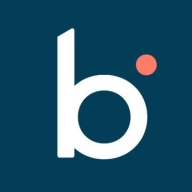

Find out what your peers are saying about Microsoft, Salesforce, SAP and others in Integration Platform as a Service (iPaaS).
We have automated complete order-to-cash processes for multiple customers, saving over 90 million dollars.
The return is faster since development efforts are minimized, allowing for quicker integration delivery.
We see return on investment from this solution in terms of time; time reduction or cost benefits is what we are getting very good results from.
Seamlessly meeting SLAs and providing excellent responses to challenges and issues related to interface and data connectivity.
The tech support is very good, offering immediate responses and chat options.
We receive service that is more than adequate, even exceptional.
Due to the tool's maturity limitations, solutions are not always simple and often require workarounds.
The response time is pretty good because we have someone in-house, who is an expert from Informatica, in our team who can help us with any sort of queries usually.
If they are unsure how to resolve an issue, they keep customers informed, providing updates about progress and ensuring communication with the product team to deliver accurate responses.
The reason we wanted to use our own Kubernetes cluster was to do automatic scaling for utilized resources, allowing us to save.
We have built approximately 1,100 interfaces for one customer, which is a significant achievement.
As a SaaS platform, IDMC is quite scalable and provides complete flexibility.
I find Informatica Intelligent Data Management Cloud (IDMC) to be a sustainable and scalable solution.
Stability is crucial because IDMC holds business-critical data, and it needs to be available all the time for business users.
The integration landscape has become complex, and having a data strategy with unified data models would make integration easier for any platform, including Boomi.
A significant area for improvement is version control.
The ETL aspect of Boomi iPaaS is not mature enough at the moment.
The tool needs to mature in terms of category-specific attributes or dynamic attributes.
I also want to see integration with other Informatica products, such as IICS, to leverage the metadata from EDC.
The licenses are too expensive compared to before, which is why customers are now preferring other data metadata management tools like OneTrust, Collibra, and Azure Purview.
While pricing is relative, compared to others, it is favorable.
The pricing for Boomi iPaaS is reasonable, costing around $6,000 per year.
It ranges from a quarter million to a couple of million a year.
The licenses are too expensive compared to before, which is why customers are now preferring other data metadata management tools like OneTrust, Collibra, and Azure Purview.
I think the costs are reasonable for the kinds of features that Informatica Intelligent Data Management Cloud (IDMC) has.
It automates the creation and population of a data warehouse, reducing the need to write SQL scripts and procedures.
The most valuable features of Boomi are the integration capabilities, the Data Hub product, and the UDI integration.
The maturity of the product is significant.
The platform's ability to pull in data from other platforms without the need for an additional integration tool enhances its appeal.
Informatica Intelligent Data Management Cloud (IDMC) can connect to pretty much any application, including Oracle Analytics and Power BI, and it works quite seamlessly.
In on-premise, we call it EDC for metadata management, while in cloud-based technologies, it is known as the Metadata Command Center, which serves the same purpose as EDC concerning CDGC.
| Product | Market Share (%) |
|---|---|
| Boomi iPaaS | 12.5% |
| Microsoft Azure Logic Apps | 12.4% |
| MuleSoft Anypoint Platform | 10.4% |
| Other | 64.7% |
| Product | Market Share (%) |
|---|---|
| Informatica Intelligent Data Management Cloud (IDMC) | 14.1% |
| Palantir Foundry | 25.2% |
| Cloudera Data Platform | 6.2% |
| Other | 54.5% |


| Company Size | Count |
|---|---|
| Small Business | 9 |
| Midsize Enterprise | 4 |
| Large Enterprise | 15 |
| Company Size | Count |
|---|---|
| Small Business | 42 |
| Midsize Enterprise | 24 |
| Large Enterprise | 134 |
The Boomi AtomSphere integration platform as a service (iPaaS) supports all your application integration processes – between cloud platforms, software-as-a-service applications, and on-premises systems. Your entire team has online access to a powerful range of integration and data management capabilities, that can be realized in a fraction of the time of legacy middleware technologies.
Informatica Intelligent Data Management Cloud (IDMC) integrates data quality, governance, and integration with flexible architecture. It supports multiple domains and a data models repository, delivering AI-enhanced data management across cloud-native platforms.
IDMC provides seamless integration and governance capabilities that support diverse data environments. Its comprehensive suite includes customizable workflows, data profiling, and metadata management. AI features, a data marketplace, and performance scalability enhance data management. While its interface poses challenges, its robust matching and cloud-native integration facilities are essential for complex data ecosystems. Users employ IDMC for connecting systems, ensuring data quality, and supporting data compliance but seek better pre-built rules, services, and improved connectivity, especially with platforms like Salesforce. Licensing, cost, and added AI functionalities are areas for potential refinement.
What are the key features of IDMC?IDMC is implemented across industries for data integration, metadata management, and governance. Organizations use it to connect systems, migrate data to cloud environments, and maintain data quality. They manage master data and automate business processes, facilitating data lineage and ensuring compliance with privacy regulations.
We monitor all Integration Platform as a Service (iPaaS) reviews to prevent fraudulent reviews and keep review quality high. We do not post reviews by company employees or direct competitors. We validate each review for authenticity via cross-reference with LinkedIn, and personal follow-up with the reviewer when necessary.